I did a talk recently, and at one point I said, ‘If there’s one thing trans people are not short of, it’s courage’.
And it’s the absolute truth. From the battlefields of the war torn Ukraine and the dancefloors of nightclubs in Colorado, to the streets of the UK, the individual struggles are different – but the courage remains.
There’s a point where courage and fear are pretty much indistinguishable. Many of us cross that point in our own journeys, when we step outside as ourselves for the first time, and many of us do it on a daily basis, knowing full well we’re going to get abuse. And there’s another point where your back is against the wall, and you’ve got nothing left to lose, or think you have nothing left to lose. But courage born of fear can also cause people to lash out.
Lashing out is understandable. Here in the UK specifically, we’re now in year six of a manufactured moral panic against the trans community. A moral panic concocted by the right-wing press on the back of Gender Recognition Act Reform, and capitalised on by the religious, unscrupulous politicians and trans hostile actors of various stripes.
There are two other things I’ve observed the trans community are really good at. Catastrophising and turning on each other. A trans friend of mine once described the community to me as ‘cats fighting in a sack’, and I didn’t believe them. But honestly, I do now. Those two aspects however, combined with lashing out, creates a potent, toxic mix.
What can cause trans people to lash out, especially now? Basically, anything and everything – but most often in the social media space it’s the use of a word or phrase, often taken out of context or misrepresented, and fear is frequently the driver.
We’ve been stuck in this faux ‘gender war’ for six long years now, a war not of our making, and our backs are against the wall. Tempers are frayed, and people are exhausted and worn thin. The ‘community’ often feels like a powder keg, and some of our own are gleefully running around with lit matches, while others egg them on.
Now I’d like to make it abundantly clear that this is my personal opinion only, but the whole ‘trans is biological’ discussion is a good case in point. I’m not going to rehash recent events, which spiralled way out of control faster than you could say ‘just a minute’, thanks to speculation borne of misrepresentation of a badly worded tweet. All I will say on that is that people can, and often do make mistakes. We’re only human after all. Live, learn and move on.
Now you may agree, or you may not, in regard to the whole ‘biological’ discussion – but let’s take a look and start by distilling the whole thing down to its bare bones (biology pun not intended). At this point we’re not concerned with what should be or could be, or arguments or discussions about the potential ramifications of such.
We’re concerned with what is.
If we do, we’re left with two things.
- Being trans is biological in origin, part of natural human diversity. As such, we’re ‘born this way’ to use the simplest of terms. ‘It is simply a fact of everyday life and human diversity’ as even the trans hostile Government said in the introduction of its July 2018 consultation paper, ‘Reform of the Gender Recognition Act.’
- If it’s not biological in origin, then being trans is a choice.
But whether you side with 1) or 2), the simple fact of the matter is that both are already weaponised against us.
Let’s take the latter first, as it’s a common ‘gender critical’ and anti-trans trope.
They try to paint being trans as a ‘choice’ we make, because in doing so it justifies removing our rights and healthcare. If it’s a ‘choice’ then Conversion Therapy is entirely justifiable (to them). If it’s a ‘choice’ then children, women and girls all need protecting from our ‘influence’.
But if you talk to anyone in the trans community for long enough, you’ll commonly find that they’ll admit that being trans wasn’t a choice. We are who we are. Some of us choose to live our lives as openly trans, some choose ‘stealth’, and some choose not to do anything. None of those are choices are about who we are, they’re choices about expressing who we are, or existing as who we are.
So, if we don’t get to choose who we are, logic then dictates being trans is inherently a part of us. Which means being trans is ‘biological’, because we’re all biological, and life itself is a ‘biological condition’.
And the hard scientific evidence is certainly stacking up that way, from neuroscience showing differences in both brain structures and how we’re wired, to studies showing differences in hormone receptors in the brain and loads of stuff in between, everyone with half an ounce of sense in the biology centred scientific community will tell you that the idea humans have two discrete ‘sexes’ is a complete nonsense, and that trans people cross those arbitrary ‘sex’ boundaries from the moment we take our first breath.
The really honest ones will admit that human biology is deeply, hideously complex, and our understanding of how it all develops and works is rudimentary and fragmentary at best.
In short, we know it’s inherent, we have a growing body of scientific evidence that appears to back that up, and that evidence also provides evidence of just how complex it all is.
Personally speaking, in my own journey I sought out the hard science when trying to come to terms with myself. I found it far more useful and logical than anything offered by those in the ‘mental health’ professions, whose theories varied from over complex to monumentally biased and flawed.
And I found it far, far more useful than the activists who just went ‘be you, its fine!’. That didn’t help, I needed to understand me. Yeah, that’s probably my autistic side at work.
Occam’s Razor often gets overlooked here, being that the simplest explanation is likely the right one. Speaking simply – if being trans wasn’t biological, then hormone treatment for gender dysphoria simply wouldn’t work. And yes, I’m fully aware of the irony of talking about Occam’s Razor and biology being hideously complex in the same article, and no the two aren’t incompatible. A treatment – such as hormone therapy, is incredibly simple. The underlying reasons as to why it’s needed, and why it works, are complex.
Now, is the biology argument singularly conclusive?
Not at all, and I’d be the first to admit that, primarily because of the complexity involved. Most people don’t get just how complex it is, or why. Personally, I think there’s actually multiple biological causes of ‘transness’, and the evidence is stacking up so much that basically every trans organisation is fully aware of it, and most if not all use it to educate cisgender people.
But ‘Gender Critical’ activists and trans activists alike capitalise on this complexity, uselessly distilling things down to endless simplistic arguments about chromosomes or reproductive potential, while ignoring that neither are responsible for the formation of identity or self-perception. If they do acknowledge identity at all, it’s often dismissed with references to ‘man brain’ or ‘lady brain’, again oversimplifying highly complex biology while trying to shoehorn it into the idea of 2 discrete, separate sexes with your biology effectively being your destiny as one or the other, leaving non-binary people out in the cold.
Because of all that, discussion about trans being ‘biological’ often causes people to lash out in fear. Terms like ‘transmedicalist’ – the belief that youre only valid as a trans person with a medical diagnosis – get thrown around like confetti at a wedding. It’s understandable, with every aspect of our existence being used against us. I get that. But there’s nothing ‘transmedicalist’ about wanting to understand what may underlie and make us who we are.
One key aspect of that fear is that somehow science will allow those who already gatekeep us to definitively ‘test’ for ‘transness’. In my honest opinion it’s a legitimate fear, but unfounded and unlikely to ever lead anywhere, and I can confidently state that’s the view of everyone in the team here at TransLucent.
In fact, trans luminary and biologist Julia Serano pretty much said the exact same thing as I have here in a twitter thread recently, and Munroe Bergdorf actually got ‘tested’ in her 2018 documentary ‘What Makes a Woman’. Weirdly I don’t see anyone attacking either of those people, nor every other trans organisation either.
Anyway, back to science. In many ways we only need to look back at the scientific search for ‘the gay gene’ and how that played out. Scientists, some homophobic and looking for a ‘cure’, some just curious, have spent about 50 years looking for a specific gene, or sequence of gene expression that ‘turns’ boys gay. A few years ago the scientific community basically gave up, throwing their hands in the air while proclaiming they couldn’t find it and that it was pointless to keep on looking.
Why?
Because human biology is hideously complicated, with multiple genes and both internal and external factors all coming together in ways that are entirely unpredictable, in something known as a multifactorial polygenic traits. I’m oversimplifying a bit for obvious reasons, but I’m sure you get the gist. And I’m personally convinced exactly the same process is what ‘causes’ trans people to be trans, and because of that a ‘cause’ may never be found.
But what that science did is help prove to society, alongside growing social acceptance, that being gay is inherent, being biological in nature. Gay people were ‘born that way’, even if we couldn’t describe exactly how, and sexuality wasn’t a choice. And because of that, over time most people have come to understand that you can’t actually stop someone from being gay.
Sure, that doesn’t stop some people from trying, but the majority of people now understand it’s just not possible.
While the fight for LGB acceptance hasn’t yet been won completely, and there are still many issues being faced by the LGB community, in terms of social acceptance things are greatly improved, and gay rights are unlikely to regress even marginally here in the UK.
That understanding only came from the combination of science and growing social acceptance.
But if something as simple as sexuality is so complex that they can’t find a cause, let alone test for it, then science doesn’t have a snowball’s chance in hell of devising something to apply to trans people. Let alone doing it in a way that’s cheap, reliable, easy and profitable enough to be used on a tiny minority of people. So, if you think gene tests or brain scans can ‘prove’ someone is trans, you can bin that idea.
Diagnostic testing is simply not viable nor realistic, although sure, some might try to claim the opposite and be shown up for the charlatans they are. It’s part of the many reasons that the Gender Identity Clinics in the UK are such a monumental failure, where the ‘diagnostic testing’ processes rooted in outdated mental health assessments still reign supreme, despite gender incongruence no longer being classified as a mental health issue by the World Health Organisation.
Now, as understanding grows, scientific and technological advances might put us in a position in a hundred years or so where it might be able to ascertain via some form of non psychological testing with some degree of accuracy if someone is binary trans, but we’re a long way away from that in every sense. And by then it’ll be pointless because social acceptance will have advanced long past the point of it being necessary.
Which puts us back to where we are right now. Because of the combination of hard science, growing visibility and social acceptance, more people are starting to understand that being trans is immutable, that we’re literally ‘born this way’, whether you’re binary or non-binary.
It’s not about eliciting sympathy or pity, it’s about increasing understanding, and that’s useful for cisgender and trans people alike. So where does that leave us?
Well, we can shout about ‘trans liberation’ all we like, but the hard truth is our existence is entirely at the whim of cisgender society, and there’s absolutely no way we’re going to secure rights and healthcare, for all of us, without hard evidence. There’s not enough of us, there’s not enough allies, and we don’t have the numbers, power nor the means of getting it to make it a reality. And while our fight for rights and acceptance parallels LGB people’s in many ways, in others it’s distinctly different.
Here in the UK for example you can’t get treated for gender dysphoria nor get legal recognition unless you have a medical diagnosis.
Is that right? No, but there’s no chance of us getting treatment under informed consent or a de-medicalised process here either. Dr Michael Brady, the National LGBT Advisor, basically said as much during the application for a Judicial Review back in 2020, where section 66 clearly states :
“It has become clear from our discussions with DHSC and the helpful insight provided by the National Adviser on LGBT Health, Dr Michael Brady, that removing the diagnosis of gender dysphoria while maintaining a medical aspect to this process would be an impractical step. For those seeking medical support to change their gender, the NHS would continue to provide a diagnosis of gender dysphoria or gender incongruence even if we removed this requirement from the GRA process.
The view of the DHSC and NHS England officials and advisors was that such a change would create confusion and uncertainty amongst clinicians and so they do not currently support such a change…”
The NHS is too backwards, out of date and risk averse for that, and we can’t even get legal recognition de-medicalised without six years of fearmongering and manufactured political culture wars.
Does that mean we stop trying? Of course not.
Having proper data and research also gives us the tools and evidence we need to challenge things like diagnostic criteria and processes, or work out and push for HRT regimes that are individually safe and beneficial, and not based solely on adherence to binary cisgender norms. Data that can be used to challenge the idea of only providing treatment where there is evidence of ‘clinical distress’, or the exclusion of trans people from the Conversion Therapy Ban.
But It’s going to be a long, painful, incremental process, and one that brings me back to where I started.
Fear.
In many ways how the trans community as it exists in the UK today and across social media reminds me of the Five Monkeys Experiment.
There’s a bunch of bananas at the top of a ladder, but if any chimp that tries to reach them they’re all blasted with a high pressure water hose. Over time the chimps learn not to try for the bananas. Then one gets replaced – and the other chimps stop them from going for the bananas so they don’t get blasted with water. The new chimp hasn’t a clue what’s going on, and is beaten into compliance.
Repeat that until they’re all replaced, and none of them know why they shouldn’t climb the ladder, none have been hosed down – but they stop any other chimp that tries anyway, violently.
It’s a sort of generational trauma based on fear. And that’s a good way of describing trans lives in cisgender, transphobic society, with science and biology as the water hose in this instance. If we want to be really honest, we’re actually dealing with multiple water hoses. It’s little wonder the trans community often reacts as it does.
But if your opposition to increasing evidence being trans is ‘biological’ is that it somehow, at some undefined point in the future it might be used against us, you need to stop subscribing to the politics of fear.
And if you’re using the politics of fear against your own community, please put down the matches and stop screaming at your own side. You might not agree with me, or the science, and that’s fine. But your energy would be better placed by focusing on those actually opposed to our existence rather than tilting at windmills and working against those who are working hard to actually change things, for all of us.
Fear is easy.
Truth is an awful lot harder.




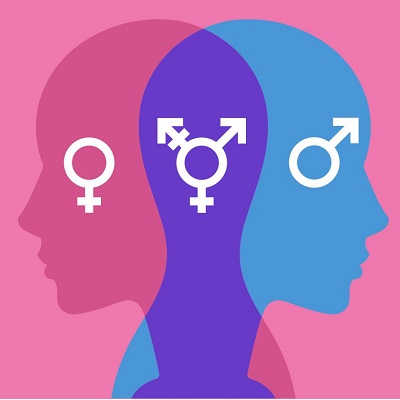
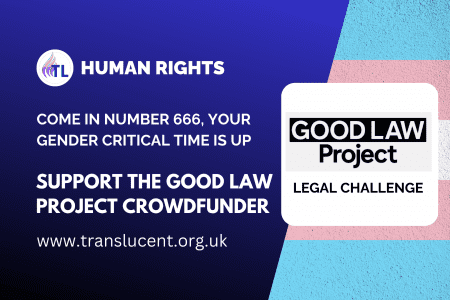
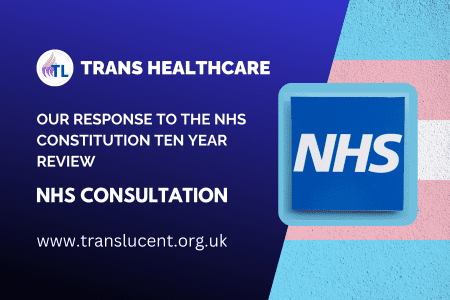
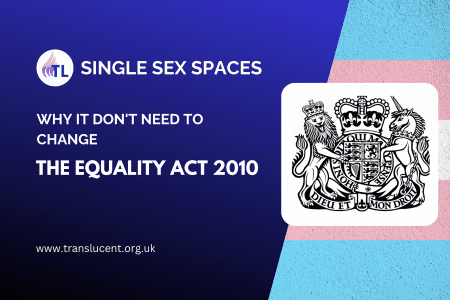


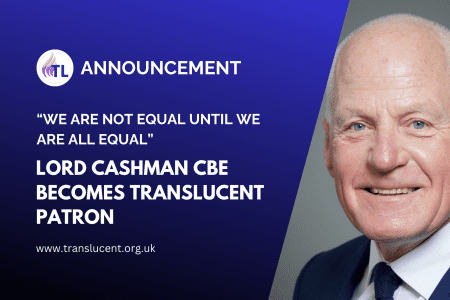
 To provide the best experiences, we use technologies like cookies to store and/or access device information. Consenting to these technologies will allow us to process data such as browsing behaviour or unique IDs on this site. Not consenting or withdrawing consent, may adversely affect certain features and functions.
To provide the best experiences, we use technologies like cookies to store and/or access device information. Consenting to these technologies will allow us to process data such as browsing behaviour or unique IDs on this site. Not consenting or withdrawing consent, may adversely affect certain features and functions.